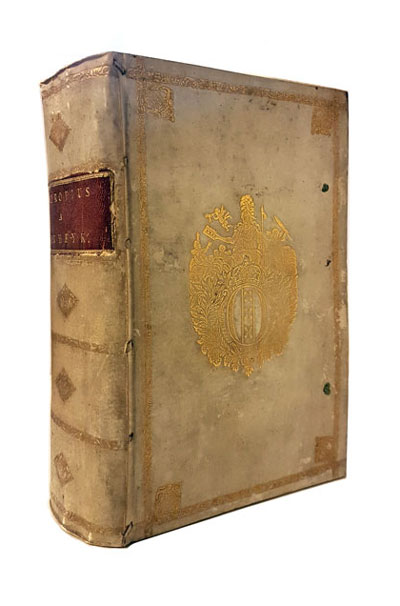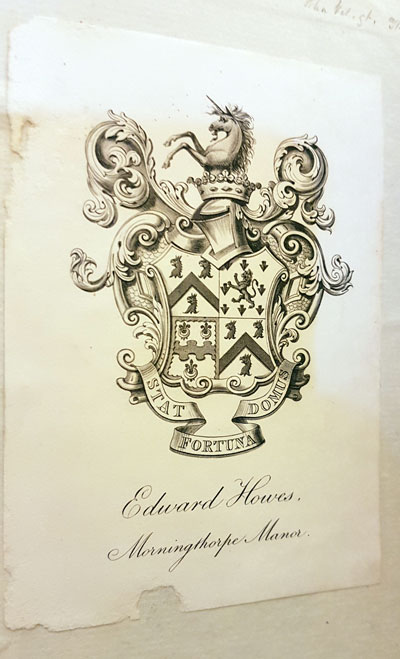All text is in the original Latin and Greek.
About the authors:
Flavius Eutropius was an Ancient Roman historian who flourished in the latter half of the 4th century AD.
Eutropius held the office of secretary (magister memoriae) at Constantinople, accompanied the Emperor Julian (361–363) on his expedition against the Persians (363), and was alive during the reign of Valens (364–378), to whom he dedicates his Breviarium historiae Romanae and where his history ends. Possibly he held higher state offices in later years, becoming Praetorian prefect for Illyria in 380 and – together with emperor Valentinian II – consul in 387. However, it is a question of academic discussion whether the Eutropius holding these offices is really to be identified with the historian.
Eutropius reportedly hailed from Bordeaux, and was almost certainly a pagan, which he remained even under emperor Julian’s successors.
The Breviarium Historiae Romanae is a complete compendium, in ten chapters, of Roman history from the foundation of the city to the accession of Valens. It was compiled with considerable care from the best accessible authorities, and is written generally with impartiality, and in a clear and simple style. It was much used by other Roman chroniclers.
Paeanius was a late Roman Empire historian, author of a translation into Greek language of the Latin Breviarium historiae Romanae, the historical work of Eutropius.
The Breviarium was completed by Eutropius within 369: Paeanius’ translation appeared before 380. The Breviarium was a compendium of ancient Roman history, used both as a textbook in schools and as a fast course on Roman history for the higher social classes (it was dedicated to Emperor Valens): Paeanius’ translation allowed Greek-speaking people to have a graceful version of this compendium.
About the previous owner:
Edward Howes DL (1813 – 1871) was an English Conservative Party politician who sat in the House of Commons from 1859 to 1871.
Howes was the son of Rev. George Howes, rector of Spixworth, Norfolk, and his wife Elizabeth Fellowes, daughter of Robert Fellowes of Shotesham Park, Norwich. He was educated at St Paul’s School and at Trinity College, Cambridge. He was Bell Scholar in 1832, scholar in 1833, Porson Prize winner in 1834 and winner of the 2nd Chancellor’s medal in 1835. He graduated BA in 1835 and MA in 1838. He was elected a Fellow of Trinity College in 1836 and was called to the bar at Lincoln’s Inn in June 1839. He did not practise as a barrister but was an equity draftsman and conveyancer. He lived at Morningthorpe, Norfolk and was a Deputy Lieutenant and J.P. for Norfolk. He became chairman of the Quarter Sessions for Norfolk in 1848, and a Church Estates Commissioner in 1866.
Howes was elected as a Member of Parliament (MP) for East Norfolk at the 1859 general election and held the seat until it was abolished in 1868. At the 1868 general election he was elected MP for South Norfolk. He held the seat until his death aged 57 in 1871. He was opposed to the Malt Tax, and all attempts to ” impair the influence of the Church of England.”
Howes married firstly in 1842 Agnes Maria Gwyn, daughter of Richard Gwyn. She died in 1843 and he married secondly in September 1851, Fanny Fellowes, daughter of Robert Fellowes of Shotesham Park, Norwich.
– from wikipedia




